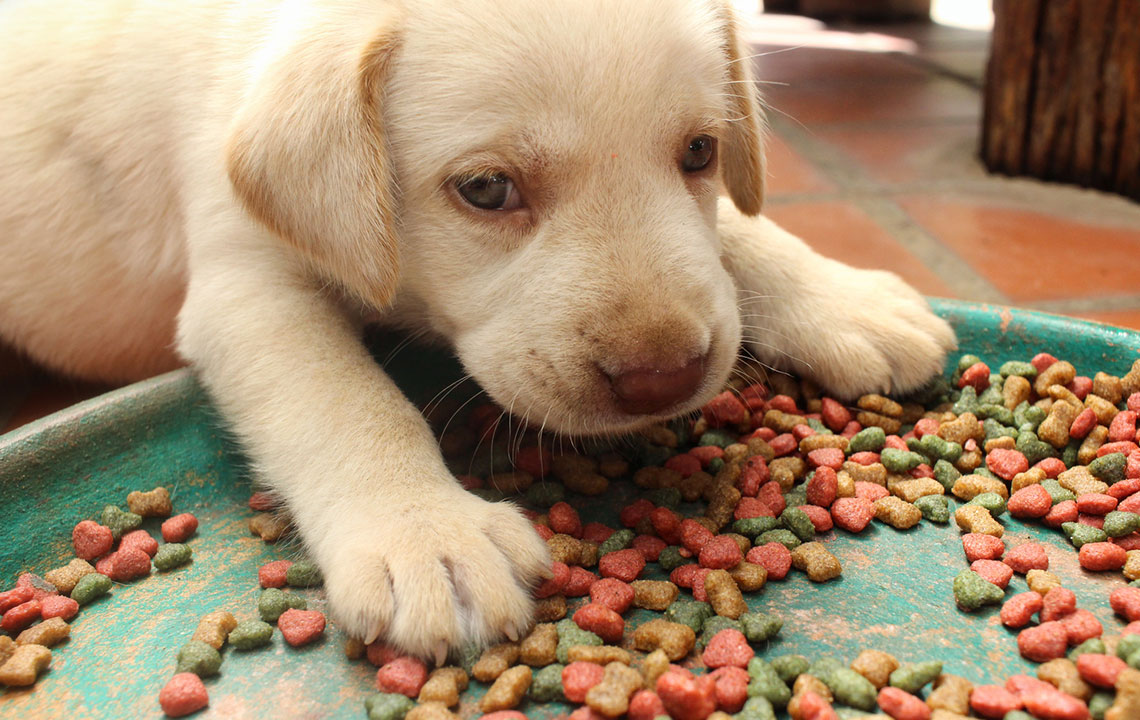Complete Guide to Choosing the Best Nutrition for Your Puppy’s Healthy Growth
This comprehensive guide provides crucial tips for selecting the right puppy food to ensure healthy growth and development. Topics include breed-specific needs, nutritional requirements, and expert advice on choosing high-quality, balanced diets. Proper nutrition from the start helps puppies grow into healthy, active adult dogs, supporting bones, muscles, and cognitive functions. The article emphasizes gradual diet transitions, monitoring growth, and consulting veterinarians for tailored recommendations. Whether you're a new pet owner or experienced, this guide equips you to make informed decisions to nourish your puppy effectively, laying the foundation for a lifetime of health and happiness.

Complete Guide to Choosing the Best Nutrition for Your Puppy’s Healthy Growth
Bringing home a new puppy is an exciting milestone that fills your home with joy and anticipation. However, ensuring your puppy’s healthy development requires more than just love and attention; it necessitates proper nutrition. A well-balanced diet tailored to your puppy’s age, breed, and individual needs lays the foundation for a healthy, vibrant life. This comprehensive guide will walk you through the essential aspects of selecting the right puppy food, understanding their dietary requirements, and providing the best possible nourishment for your furry friend.
Understanding your puppy’s breed, eating habits, and nutritional needs is critical to making informed decisions about their diet. Puppies are not miniature adult dogs; they require special nutrients to support rapid growth, bone development, and immune system strengthening. When selecting a puppy food, consider their breed, size, and activity level to ensure their diet meets all essential health requirements.
At the beginning, it’s important to gather information from breeders, previous owners, or pet stores to understand your puppy’s current diet. Abrupt dietary changes can upset their stomach and cause stress, so transitions should be gradual. While dogs are primarily carnivores, many enjoy a mix of grains, vegetables, and fruits, which can provide additional nutrients and fiber. The ideal puppy food should offer a balanced combination of high-quality meat ingredients and plant-based sources to promote overall health and well-being.
Proper nutrition is a cornerstone of your puppy’s growth. Just as children need nutritious food to develop into healthy adults, puppies require high-quality nourishment to build strong muscles, healthy bones, and a robust immune system. Puppies often need more calories than adult dogs—sometimes twice as much—to support their rapid growth phase. Their diet must include crucial nutrients such as calcium, phosphorus, healthy fats, and proteins to facilitate healthy development.
Monitoring your puppy’s growth is essential to ensure they’re thriving. Regularly check their rib cage—feeling their ribs should be easy but not visible, indicating proper body condition. Consult with a veterinarian to identify the most suitable food types and to develop a proper feeding schedule that adapts as your puppy matures, usually around nine months. Adjusting their diet based on age, breed, and activity level is vital for optimal health.
Expert Tips for Choosing the Perfect Puppy Food
Size matters significantly. Larger breeds such as Great Danes and Saint Bernards have different nutritional needs compared to smaller breeds like Chihuahuas and Dachshunds. Larger puppies require diets that support bone strength, joint health, and proper muscle development since their growth rate is more rapid and their joints are under more stress. Selecting foods formulated specifically for small or large breeds ensures your puppy receives the tailored nutrients they need.
Opt for reputable brands that have undergone testing by the Association of American Feed Control Officials (AAFCO). Foods endorsed by AAFCO meet strict standards for nutritional completeness and quality. These brands typically invest in scientific research and consult veterinary nutritionists to develop balanced diets that support your puppy’s health.
Calories are a vital consideration. Active puppies need energy-dense foods to fuel their play and exploration. Look for foods enriched with essential fatty acids like DHA (docosahexaenoic acid), which is crucial for brain, eye, and ear development. Such ingredients not only promote cognitive function but also support sensory growth, contributing to your puppy’s overall development.
Further, prioritize foods with clean ingredient lists—rich in high-quality proteins, natural sources of fats, and minimal artificial additives. Your puppy’s diet should be designed to foster healthy digestion, a shiny coat, and strong teeth. Remember that your vet can help tailor the diet plan to fit your puppy’s unique needs—regular check-ups and nutritional advice will help you maintain the right balance as they grow.
In conclusion, choosing the best nutrition for your puppy is an investment in their future health and happiness. From understanding their breed-specific needs to selecting scientifically formulated foods with quality ingredients, every step counts. With proper guidance, patience, and care, you can ensure your puppy develops into a healthy, well-balanced adult dog that brings joy and companionship for years to come. Always keep an eye on their growth and consult your veterinarian for personalized advice to adapt their diet accurately over time. Remember, a well-nourished puppy is a happy puppy, and their early nutrition plays a critical role in their lifelong well-being.





